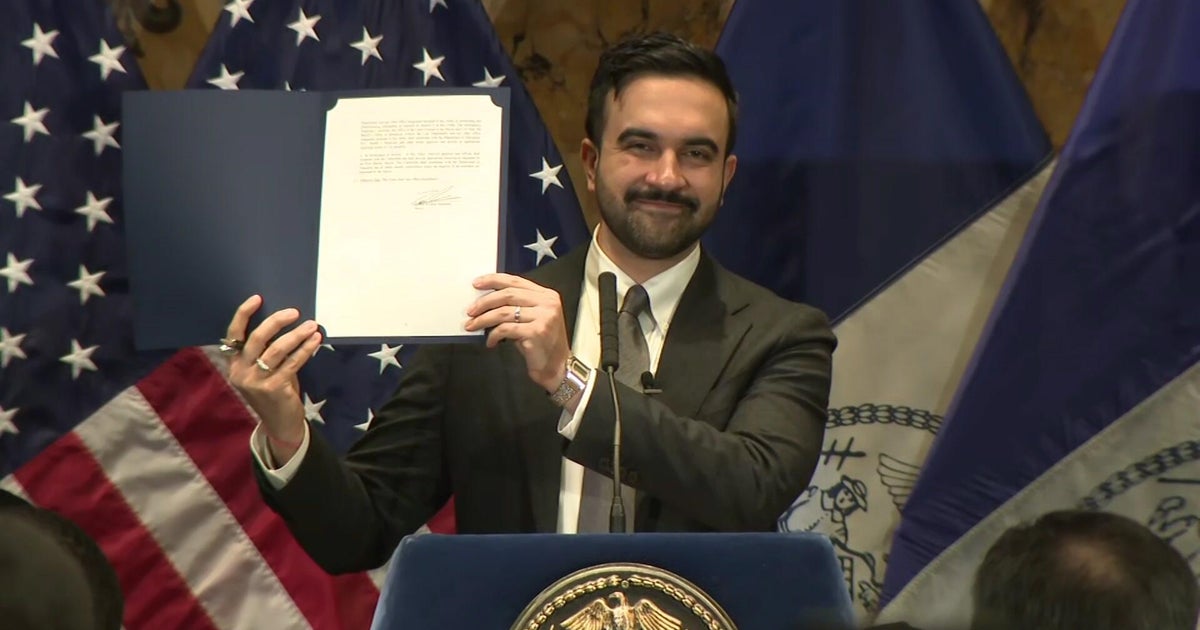Austerity Arrives With Sequestration
MIAMI (CBSMiami) – Sequestration day has arrived in Washington, D.C. and by 11:59 Friday night, the White House will be forced to order across-the-board, indiscriminate budget cuts in European-style austerity that could plunge the United States back into recession.
The cuts will be felt from Washington to Miami and all places in between. The White House and Senate Democrats do not want the sequestration to be implemented, but many in the House GOP caucus feel the sequestration cuts are needed to try to shut down as much government spending as possible.
The original idea for sequestration was to make the cuts so widespread that both Republicans and Democrats would see the potential for disaster to the economy and move to the political center through negotiations to cut spending and raise revenue to avoid the cuts.
However, the House GOP reiterated Friday that it refuses to consider any potential revenue increases through tax hikes or closing tax loopholes. The White House originally proposed a series of spending cuts with revenue increases.
House Republicans said the president's plan was dead on arrival in the lower chamber and wouldn't even be brought up for a vote. Currently, under GOP House leadership, no bill will be brought for a vote unless it has a majority of the majority supporting it.
The House did pass two bills to avert sequestration during the 112th Congress. The bills featured nothing but deep spending cuts to health care and other social safety net programs. Since the 113th Congress was seated, the House has not voted on a bill to avoid sequestration.
An exasperated President Barack Obama went before the media Friday explaining what had happened at a meeting between Congressional leaders and himself earlier in the day. He was asked about the constant calls for leadership in the face of GOP obstruction.
"Most people agree I'm presenting a fair deal," Obama said. "The fact that they don't take it means that I should somehow, you know, do a Jedi mindmeld with these folks and convince them to do what's right. Well, you know, they're elected. We have a constitutional system of government."
This year's sequestration cuts will involve cutting government spending across the board by $85 billion. The cuts will be targeted at defense, discretionary domestic and certain health care programs.
The cuts come on top of more than $1.5 trillion worth of previous cuts President Obama and Senate Democrats have agreed to in the past two years. Plus, there will be roughly $200 billion saved in lowere interest payments over the next decade.
Still, House Speaker John Boehner said no more revenue will be added to the government for any reason.
"This discussion about revenue, in my view, is over," Speaker Boehner said. "It's about taking on the spending problem here in Washington."
Still, according to the Office of Management and Budget, since 2009, the deficit has fallen faster than at any time since the demobilization from World War II in the late 1940's. Other than the demobilization, the only other time the deficit fell that fast was in 1937 during fiscal programs that prolonged the Great Depression.
The White House has said the cuts could lead to hundreds of thousands of lost jobs across multiple industries and other hardships including long lines at airports and the closing of some national parks due to cuts.
A spokesman for Fort Lauderdale Hollywood International airport said, for the moment, it should be business as usual. Broward Schools, along with BSO, Work Force One and area hospitals all said the same thing; it's too early to tell how sequestration will effect daily operations.
Once the sequestration is complete over the next decade, roughly $1.1 trillion will be cut from government spending. According to the White House, roughly 5 percent of nondefense programs and 8 percent of defense programs will be cut.
Yet, due to the fact the first year of cuts have to be implemented over a seven month period, the effective reductions will be 9 percent for nondefense programs and 13 percent for defense programs.
In Florida, the cuts will hit programs for teachers, students, head start, military readiness, and many other programs in 2013 alone. The cuts could cost thousands of jobs in the state, sending Florida's unemployment rate back up after years of slow declines.
According to the White House, Florida is set to lose $54.5 million in funding for primary and second education. The White House said those cuts could lead to 750 teachers and aides at risk. The White House said 95,000 fewer students would be served and 130 few schools would receive funding.
Florida also stands to lose $31.1 million in funds for 380 teachers, aides, and staff at school's that help children with disabilities. The state may also lose Head Start and Early Head Start services for roughly 2,700 children.
The unemployed in Florida will be hit especially hard at a time when thousands more government workers are likely to hit the unemployment line. The White House said Florida will lose $2.3 million in funding for job search assistance, referral, and placement, impacting nearly 80,000 workers.
The indiscriminate cuts are likely to shave off at least 0.6 percent of national economic growth this year, according to Federal Reserve Chairman Ben Bernanke.
Complicating the issue further for the GOP is the public has thus far weighed in solidly behind President Obama's plan of a mixture of spending cuts and revenue increases. A Washington Post/ABC News poll found that 67 percent disapproved of the "way Republicans in Congress are handling federal spending."
The complexity of the issue facing the GOP as it moves forward with the sequestration will only get tougher in the view of the public. If government doesn't create jobs as Florida Governor Rick Scott and others like Senator Marco Rubio have said, then a government cut to spending wouldn't hurt job growth in the country.
However, Governor Scott and other high-level Republicans are arguing just the opposite saying the sequestration cuts could cost thousands of Americans their jobs.
Senator Rubio issued a statement on sequestration in which he claimed that "the President has vowed to veto any measure to replace these indiscriminate cuts with more strategic spending reductions or serious long-term entitlement reform. His only alternative is higher taxes on the American people that will kill jobs."
Rubio's statement is not accurate on its face because President Obama has offered cuts to spending across Medicare and other entitlements in combination with closing of tax loopholes and other tax reform that would raise revenue as well.
Congress hasn't exactly burned the midnight oil in Washington to negotiate a deal either. According to Representative Joe Garcia's office, the House was in session a total of six days in January of this year.
"We should be in Washington and not Miami and we should be facing up to our responsibilities as a country," Representative Garcia said.
While it will take a while for everyone to feel the full effects of the sequester, many taxpayers are simply sick of the gridlock that prevents anything from getting done in Washington.
"They wait until the last minute every time," said Jeff Vittone. "They can never make a decision until it's too late and everything else, the market and everything else crashes and burns in the meantime."







